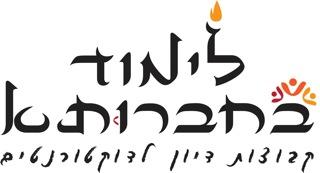"Causal Inference- הסקה סיבתית" (חגי רפפורט- מדעי המחשב וביולוגיה חישובית)
כל תלמיד בקורס ראשון בסטטיסטיקה לומד ש״מתאם אינו סיבתיות״, ובהכללה, שהשיטות הסטטיסטיות הקלאסיות יכולות רק לספק רמזים לאפקטים סיבתיים ולעולם לא עדות ישירה, שיכולה להגיע אך ורק מניסוי נשלט. הסקה סיבתית היא תת תחום של סטטיסטיקה, ועוסקת בדרכים בהן אפשר להסיק סיבתיות גם ממידע אמפירי (שלא הגיע מניסוי). בקבוצה נלמד הסקה סיבתית החל מהיסודות, עם התמקדות בנושאים להם נגיעה ישירה למחקר של חברי הקבוצה. נתבסס בעיקר על למידה עצמאית של הקונספטים, והמפגשים יוקדשו למעבר משותף על החומר ולדיון על דוגמאות ליישומים שלו במחקר, אותן יספקו חברי הקבוצה.
אנו נעקוב אחר ספר הלימוד של יהודה פרל [1]. לפני כל מפגש נבקש מהלומדים לקרוא פרק או חלק ממנו, ובמפגש עצמו נסקור בקצרה את הנושא, נפתור יחד כמה תרגילים (קצרים) כדי ליישר קו על הבנה ולבסוף נבקש מהמשתתפים לספק דוגמאות בהן בא לביטוי הנושא בתחום המחקר שלהם. הרקע המתמטי הנדרש הוא בעיקר היכרות עם תורת ההסתברות, והסתברות בייסיאנית בפרט.
ליצירת קשר- hagai.rappeport@mail.huji.ac.il
It is common wisdom that “correlation does not imply causation”, or more generally, that statistics cannot prove causality. However, there are in fact statistical methods which allow one to deduce causal effects from data, even without resorting to controlled or randomized experiments. These methods are studied within the field of causal inference, which will be the focus of our group. We will combine self-study of core concepts and group discussions to explore their applicability to our research.
We will follow Judea Pearl’s book [1]. Before each meeting we will ask the participants to read [part of] a chapter from the book, and in the meeting itself we will discuss the topic, focusing on its relevance to participants’ research topics.
[1] Pearl, Judea. Causality. Cambridge university press, 2009.
For information- hagai.rappeport@mail.huji.ac.il

